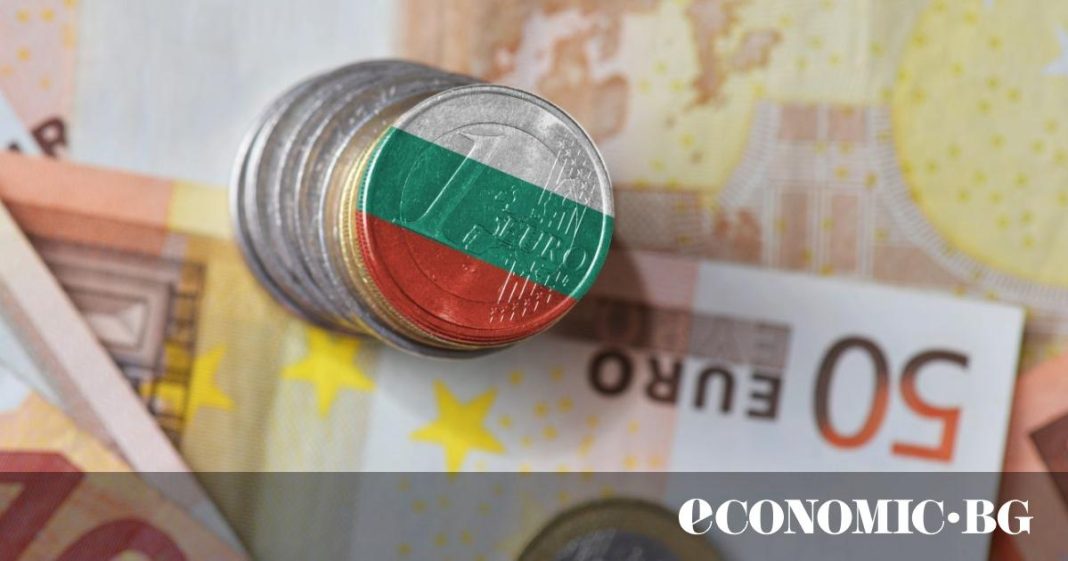Many people are worried about what will happen to their money once Bulgaria joins the eurozone. Their concerns relate to everything from savings and salaries, to pensions, insurance and the loan they took out to buy an apartment.
A survey by Economic.bg aimed to define the concerns over the introduction of the single European currency, had nearly 9,000 respondents, and confirmed the existence of such fears. It showed that every tenth person „has a lot of doubts“ about the euro. On the other hand, almost 20 percent say they are „for“ the single currency, and only 7.2% answer that they are not worried about it because they read and get informed on the issue.
The main problem is that society is divided. The public informational campaign about the euro has clearly come late, and people have no information,“ said Stoyan Yakimov, deputy chairman of the Bulgarian Chamber of Private Enforcement Agents.
During a discussion about the fate of personal finances after the introduction of the euro, Yakimov pointed out that Bulgaria „as a legal framework, institutionally and as technical criteria“ meets the requirements for accession, but the problem remains the lack of a prepared public due to the pervasive propaganda and hybrid campaign against the eurozone.
However, he reassured that according to the rules written in the Introduction of the Euro in Bulgaria Act, the debtor’s financial situation cannot worsen if he has an unpaid loan. „There are special rules for financial institutions, and the variable interest rate on loans cannot be increased after the euro,“ Yakimov said.
His words were also confirmed by Liliya Dimitrova, chairwoman of the Receivables Management Association.
The debts will remain as they are. Nothing will change because there is neither an economic nor a business reason for this to happen,“ Dimitrova said.
She added that debt collection companies are also regulated by the Bulgarian National Bank and follow strict rules.
Automatic – a keyword for currency conversion
During the debate, which brought together representatives of various industries, it became evident that the Bulgarian consumer does not have to do anything when it comes to converting their financial accounts into euros.
The readiness of the banking system is very high and the transition to the euro is a natural step,“ said Alexander Dimitrov, Executive Director at TBI Bank.
He explained that compared to the lev denomination at the end of the last century, when Bulgaria suffered from hyperinflation, the country is currently in a better situation due to the fact that a large part of the money is electronic.
What people need to do is deposit their money in banks as much as possible, as it will be automatically converted,“ Dimitrov added.
Veselin Rashin, member of the Board of Directors of Phoenix Insurance, pointed out that the insurance sector has its systems set to go for the euro. He added that the automatic currency conversion also applies to insurance products, premiums and payouts.
Citizens do not have to do anything – neither the insurance premium, nor the amounts, nor the risk will change,“ insisted Rashin.
According to Gergana Tenekedzhieva, executive director of ADDRESS Real Estate, real estate can be an aid in the transition to the euro. The reason is that property prices in Bulgaria are already listed in euros, and „citizens are used to it.“
Will interest rates on existing loans change?
Liliya Dimitrova from the Receivables Management Association explained that each interest rate has two components – one fixed and one variable. She predicted that the latter could be changed after the euro.
However, the CEO of TBI Bank countered that this was not quite the case.
In his words, the sum of the fixed and floating components, even if changed, must again be equal to that same sum in leva.
Contractual relations do not change. This is a contract between the two parties, and for it to be changed, there must be an intention from both parties. The bank cannot oblige the client to sign conditions that are only in its interest,“ said Dimitrov.
Tenekedzhieva expressed the opinion that the unification of banking products and interest rates in Bulgaria with those in the eurozone is a trend that will happen regardless of the euro. However, Dimitrov pointed out that here, too, the processes behind the numbers are different.
The reason our loan interest rates are low is the liquidity of the banks, so let’s not be afraid,“ said the banker.
Translated by Tzvetozar Vincent Iolov
Източник: Economic.bg


